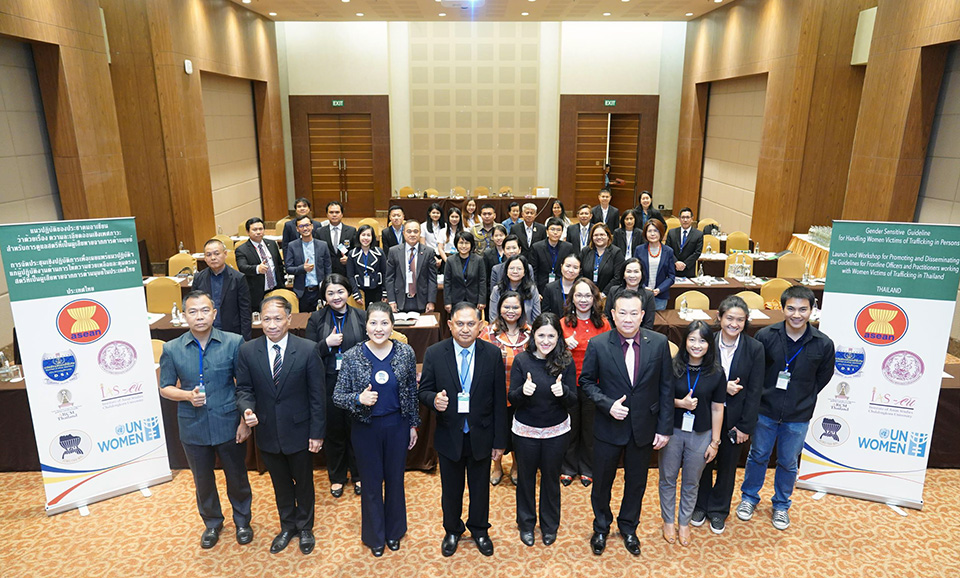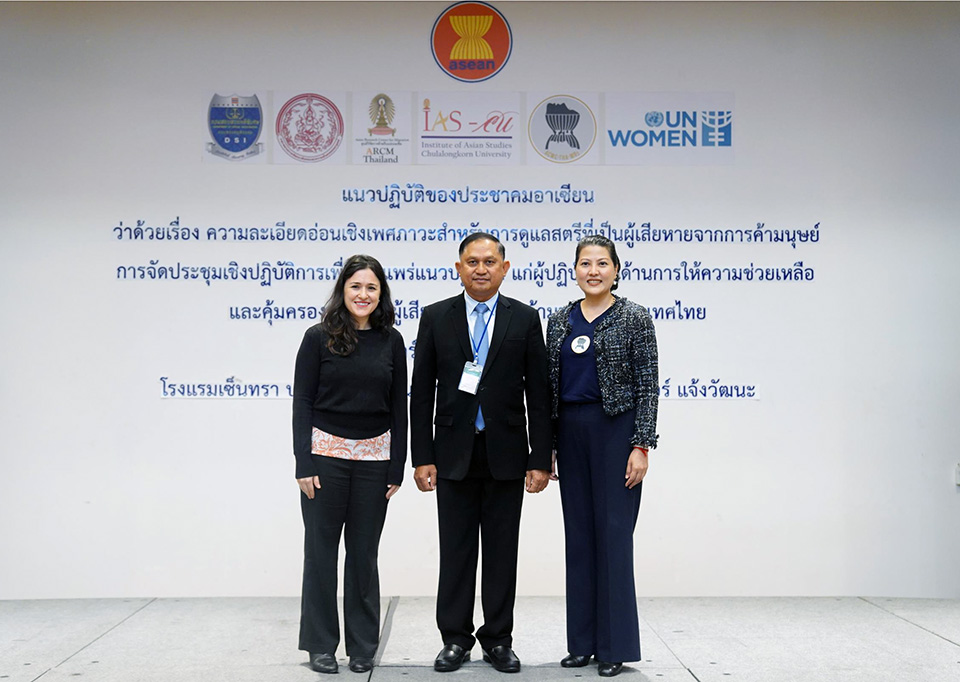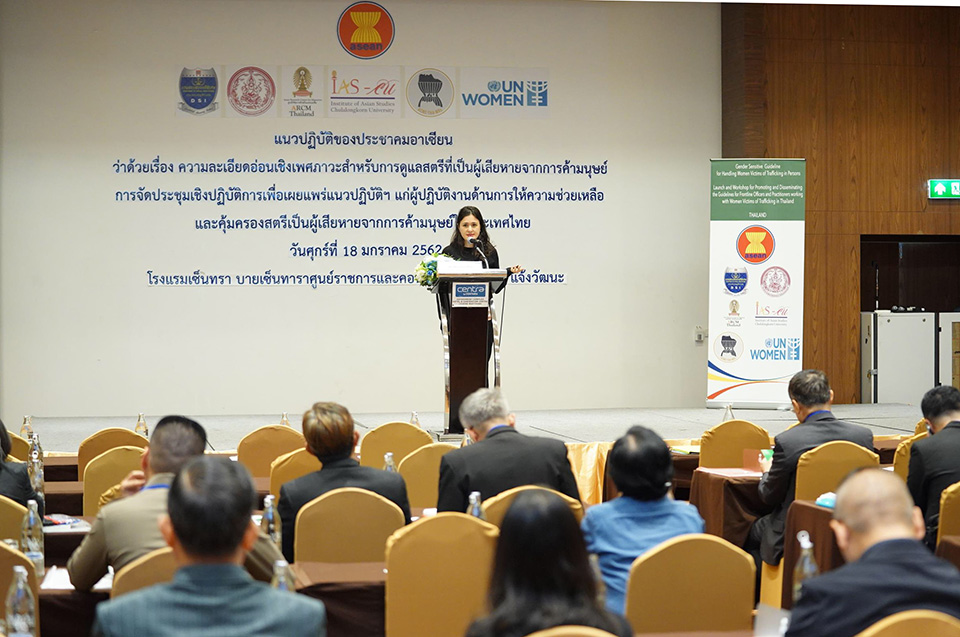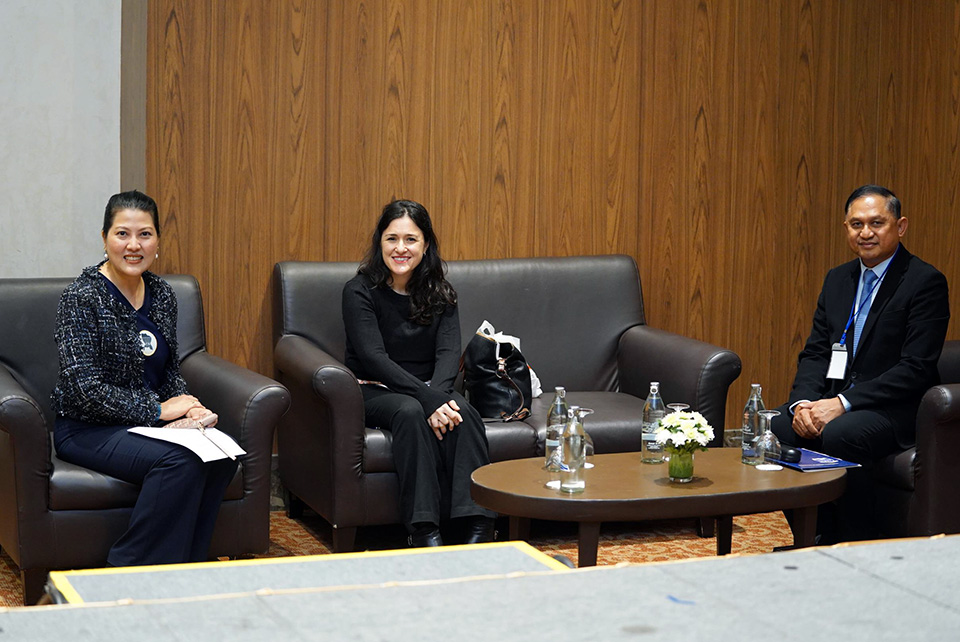ASEAN launches gender-sensitive guidelines for handling women victims of trafficking
Date:
Authors: Saranya Chittangwong and Alison Davidian
Bangkok, Thailand — Imagine you’re a police officer who has just busted a human trafficking ring. There are a dozen female victims lying on a dingy floor, crying and afraid of what comes next. What can you tell them?

Knowing how to interact with a victim of human trafficking is a delicate matter that can be daunting even for experienced frontline workers. There are certain sensitivities that law enforcement personnel and service providers can, and should, observe when dealing with women survivors in particular, but these are not widely known.
To increase awareness and improve training for key frontline personnel, Thailand has launched new Gender-Sensitive Guidelines for Handling Women Victims of Trafficking in Persons in Thailand. Support to adaptation of the Guidelines to Thailand’s context is the result of a joint effort between UN Women Thailand; the ASEAN Commission on the Promotion and Protection of the Rights of Women and Children (ACWC); the Department of Special Investigation, Ministry of Justice; and the Asian Research Center for Migration at the Institute of Asian Studies, Chulalongkorn University.
The Guidelines aim to strengthen the capacity and practices of frontline officers and practitioners working with women victims of trafficking so as to provide more gender-sensitive and responsive services.

“These Guidelines will enhance collaboration among relevant agencies, including government, non-governmental and international organizations, on countering human trafficking,” said Pol. Lt. Col. Pakorn Sucheevakun, Deputy Director-General with the Department of Special Investigation in Thailand’s Ministry of Justice.
Some 1,500 local women’s groups, officers (including the Anti-Human Trafficking Division of the Royal Thai Police), and key community members in Bangkok, Tak and Chiang Rai are expected to benefit and be reached directly through capacity-building workshops, awareness-raising and advocacy activities.
The first capacity-building workshop to ‘localize’ or adapt the Guidelines to local realities was held in Bangkok on 18 January.

“By training frontline officials, including law enforcement, to be more gender sensitive, not only do their interactions with victims improve, but more survivors receive assistance and more criminals can be apprehended,” explained Alison Davidian, Programme Management Specialist on Women, Peace and Security, for the UN Women Regional Office for Asia and the Pacific at the opening of the workshop.
Thailand is the first ASEAN member country to localize the Guidelines, leading the way in ensuring that victims are better served and that communities, and women in particular, are more empowered and aware of how to prevent trafficking.

“Developed by ACWC in 2016, the Guideline intends to be localized by officers and service-providers in providing gender-sensitive assistance that can address the needs of women victims of trafficking,” explained Ratchada Jayagupta, the Representative of Thailand to the ACWC.
The localization of the Guidelines is supported under UN Women’s joint programme with the UN Office on Drugs and Crime (UNODC) “Preventing and Mitigating the impacts of Terrorism, Trafficking and Transnational Crime through Women’s Empowerment”, which is generously funded by the Governments of Japan and Canada.